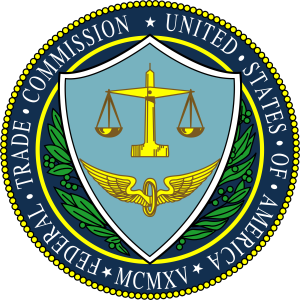 Last week, the FTC brought its first action against a social media influencer for failing to make appropriate disclosures on sponsored posts. While it had previously prosecuted companies who pay influencers for posts such as Lord & Taylor and Warner Brothers, this marks the first time the FTC has pursued an influencer.
Last week, the FTC brought its first action against a social media influencer for failing to make appropriate disclosures on sponsored posts. While it had previously prosecuted companies who pay influencers for posts such as Lord & Taylor and Warner Brothers, this marks the first time the FTC has pursued an influencer.
Articles Tagged with disclosure
Banging the Disclosure Drum: The Once Blurry Line between Advertiser and Influencer Continues to Come into Focus
 As we have written about time and time again, and as celebrities and influencers gain more and more followers on social media platforms such as Instagram, Snapchat and Twitter, they must exercise care when endorsing the use of sponsored products and services. Under the current legal landscape, posting endorsements on social media can not only affect the user’s brand, it can also expose one to legal liability. For its part, the Federal Trade Commission provides clear regulations regarding the posting of endorsements for products or services. When a product or service is featured on a social media post, and the poster is receiving some sort of compensation for the post (including receiving the product/service at a discount or for free), a poster may have to disclose that he or she is somehow being compensated, if the audience’s knowledge of the sponsorship would affect the credibility they give the poster’s endorsement. The FTC’s website contains common Q&As regarding when an endorsement must be disclosed on social media and how it must be done. Continue Reading →
As we have written about time and time again, and as celebrities and influencers gain more and more followers on social media platforms such as Instagram, Snapchat and Twitter, they must exercise care when endorsing the use of sponsored products and services. Under the current legal landscape, posting endorsements on social media can not only affect the user’s brand, it can also expose one to legal liability. For its part, the Federal Trade Commission provides clear regulations regarding the posting of endorsements for products or services. When a product or service is featured on a social media post, and the poster is receiving some sort of compensation for the post (including receiving the product/service at a discount or for free), a poster may have to disclose that he or she is somehow being compensated, if the audience’s knowledge of the sponsorship would affect the credibility they give the poster’s endorsement. The FTC’s website contains common Q&As regarding when an endorsement must be disclosed on social media and how it must be done. Continue Reading →
Internet Vino Veritas: Rules and Guidelines for Social Media Efforts Related to Alcohol Sales
Every day, businesses extend more of their services to the internet in an effort to cater to millennials and upcoming generations of consumers. Those in the wine industry are no exception. Though somewhat slow to adopt online and digital marketing in the beginning, businesses in the alcohol industry are catching up. One site called the Tasting Room, touted as the fastest growing wine club in the country, offers an online questionnaire that can determine affordable wines that a customer supposedly would like and then deliver them directly to the customer’s door. Part of the assessment involves receiving a tasting kit for the consumer to taste and rate and then completing a survey on the company’s website. Tasting Room’s algorithm then determines appropriate wine selections for you. The customer also rates subsequent shipments so that the wine selections become even more finely tuned over time.
Warner Bros.’s “Paid to Play” Disclosures Draw FTC Action
Earlier this year, the Federal Trade Commission (FTC) went after Warner Bros. Home Entertainment Inc. for not clearly representing that several digital influencers were paid as part of a marketing campaign for the video game Middle Earth: Shadow of Mordor. (See our prior posts on FTC enforcement of its disclosure requirements.) According to the complaint, these influencers were paid amounts ranging from hundreds of dollars to tens of thousands of dollars and received advance-release copies of the game with instructions on how to promote the game. The sponsored videos were viewed more than 5.5 million times. One very popular influencer, Felix Kjellberg, known as “PewDiePie” on YouTube, created a video that has been viewed over 3.7 million times by itself.
The FTC Act and the Importance of Staying Transparent
 We’ve written previously on the rise in FTC scrutiny and enforcement regarding the use by companies of paid digital influencers without the proper disclosures. Recently, retailer Lord & Taylor found itself in the FTC’s crosshairs when it employed bloggers and Nylon magazine as part of a very successful campaign to promote a clothing collection online and on social media. Unfortunately, the campaign was less successful in its compliance with the FTC Act.
We’ve written previously on the rise in FTC scrutiny and enforcement regarding the use by companies of paid digital influencers without the proper disclosures. Recently, retailer Lord & Taylor found itself in the FTC’s crosshairs when it employed bloggers and Nylon magazine as part of a very successful campaign to promote a clothing collection online and on social media. Unfortunately, the campaign was less successful in its compliance with the FTC Act.
Along with colleagues Lori Levine and Lauren Lynch Flick, we’ve taken a closer look at the case in Lord & Taylor Case Shows the Importance of Transparency in Advertising, itself just the latest example of how companies can run into trouble when they fail to fully disclose a promotion or advertisement.
 Internet & Social Media Law Blog
Internet & Social Media Law Blog



